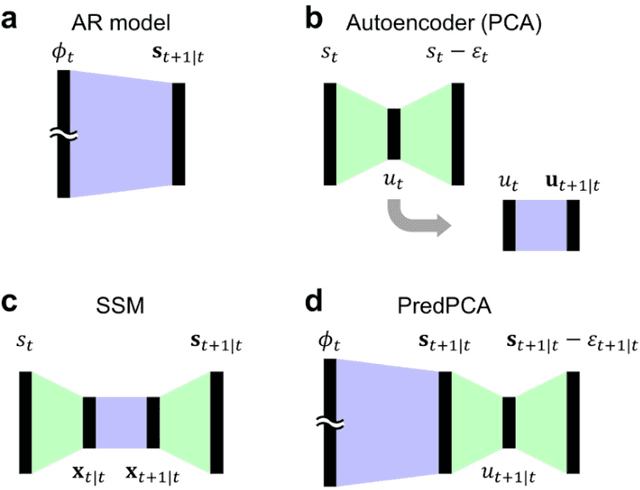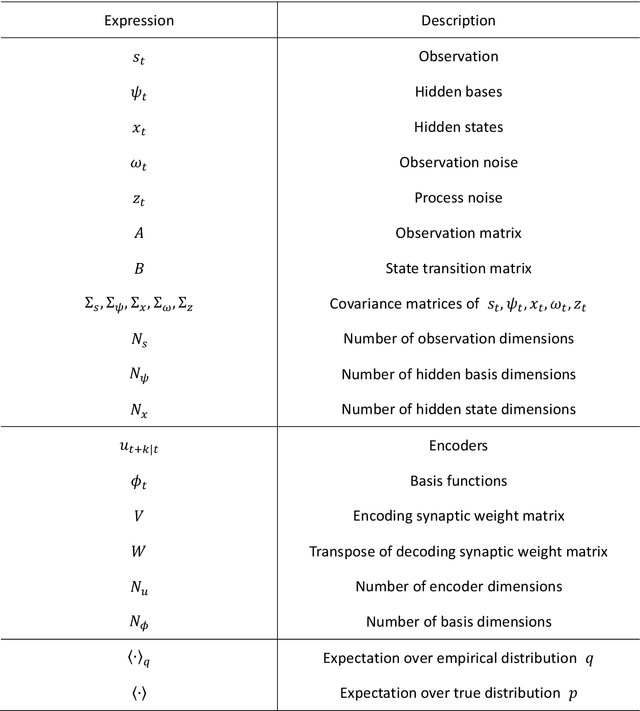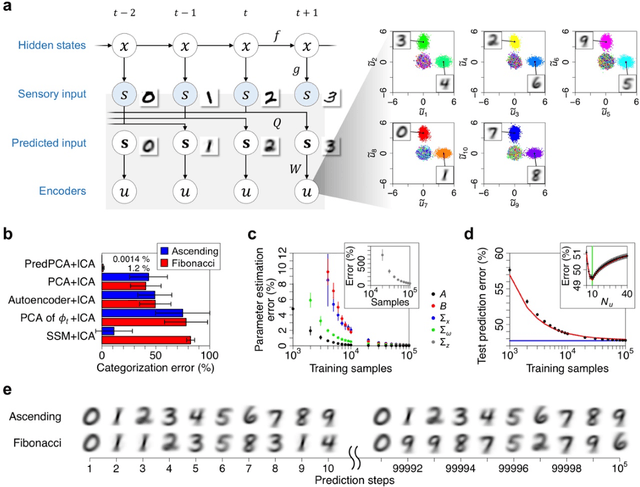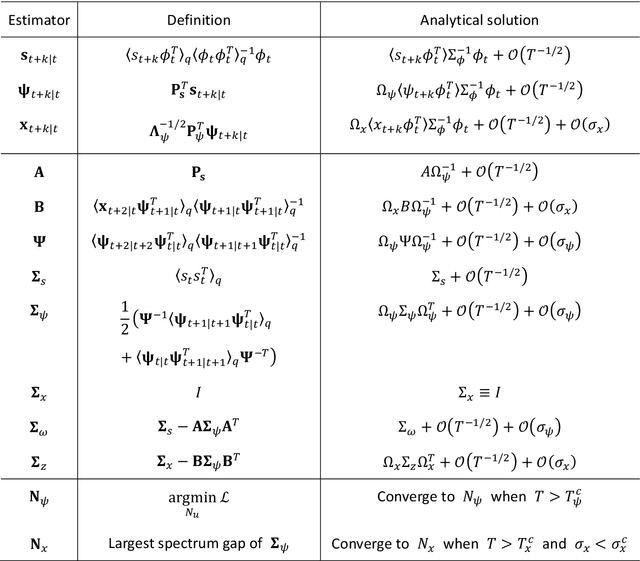Dimensionality reduction to maximize prediction generalization capability
Paper and Code
Mar 01, 2020



This work develops an analytically solvable unsupervised learning scheme that extracts the most informative components for predicting future inputs, termed predictive principal component analysis (PredPCA). Our scheme can effectively remove unpredictable observation noise and globally minimize the test prediction error. Mathematical analyses demonstrate that, with sufficiently high-dimensional observations that are generated by a linear or nonlinear system, PredPCA can identify the optimal hidden state representation, true system parameters, and true hidden state dimensionality, with a global convergence guarantee. We demonstrate the performance of PredPCA by using sequential visual inputs comprising hand-digits, rotating 3D objects, and natural scenes. It reliably and accurately estimates distinct hidden states and predicts future outcomes of previously unseen test input data, even in the presence of considerable observation noise. The simple model structure and low computational cost of PredPCA make it highly desirable as a learning scheme for biological neural networks and neuromorphic chips.
 Add to Chrome
Add to Chrome Add to Firefox
Add to Firefox Add to Edge
Add to Edge